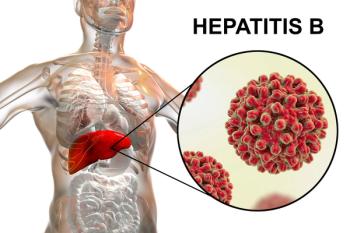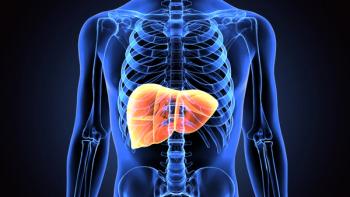
As Liver Transplant Patients Live Longer, Kidney Disease Has Become a Risk
A review of 23 studies found that evidence of kidney disease before a liver transplant is the strongest predictor of kidney disease afterward.
Since the first liver transplant was performed at the University of Colorado 60 years ago, the procedure has evolved into life-saving surgery for countless patients with end-stage liver disease around the world. In the U.S., there are just over 9,200 liver transplants performed in 2021.
Thanks to dramatically improved perioperative management and immunosuppressive therapy in liver transplant surgery over the past few decades, recipient long-term survival has increased. In the U.S., But for some liver transplant patients, a longer life may come with some complications, including chronic kidney disease that in severe cases can be fatal.
Researchers at the Shiraz University Medical Sciences in Iran, investigated to see if there was a correlation between liver transplant patients living longer and developing chronic kidney disease as a long-term complication. Their findings, published in the journal of Experimental and Clinical Transplantation in January 2023, confirmed the relationship.
“Chronic kidney disease as a long-term complication is common in liver transplant recipients whose survival is affected by renal function,” wrote Nakisa Rasaei, M.D., assistant professor of nephrology and the paper’s lead author. “Risk assessment of renal function before liver transplant and some non-renal causes of chronic kidney disease after transplant could help reduce the risks associated with future renal outcomes.”
Chronic kidney disease, added Rasaei and colleagues, is also associated with higher cardiovascular risk, hospitalization, and mortality in transplant recipients compared with people with preserved kidney function.
The research team undertook a systematic review of 1,414 articles which it winnowed down to 23. Fifteen papers evaluated the incidence, while seven articles covered the prevalence, and 19 articles reported on risk factors.
The researchers found that different studies estimated the prevalence of chronic kidney disease stage through various follow-up periods after transplant. A review of nine studies evaluating prevalence of post- liver transplant chronic liver disease stages at different time intervals showed that stage 3 was the most common.
According to the Kidney Diseases Outcome Quality Initiative Guidelines, patients with chronic kidney disease are grouped into three categories: No or mild disease (Stages 1 or 2); moderate disease (Stage 3); and Severe (Stages 4 and 5).
The researchers noted that one reason stage three may be the most common level of chronic kidney disease is because medical literature only considers advanced stages of renal failure when describing prevalence, incidence, or risk factors post-transplant.
“The existing literature may underestimate the actual burden of chronic kidney disease after liver transplant because many liver transplant patients do not reach end stages throughout the follow-up or need to be assessed for long-term outcomes,” wrote Rasaei.
Some renal dysfunction before the liver transplant is the most significant predictor of chronic kidney diseae afterward, the researchers reported Measuring risks at the time of transplant, they conclude, could help avoid or minimize chronic kidney disease.
“Survival is affected by renal function,” wrote the researchers. “Subsequently, the risk of death seems to increase as the glomerular filtration rate decreases. A decline in glomerular filtration rate during the first months after a liver transplant may be attributed to immunosuppressive agents. Later renal function tends to change more gradually post-transplant. Before liver transplant, renal dysfunction and some nonrenal etiologies of post-transplant chronic kidney disease are the risks associated with future renal dysfunction.”
Newsletter
Get the latest industry news, event updates, and more from Managed healthcare Executive.























